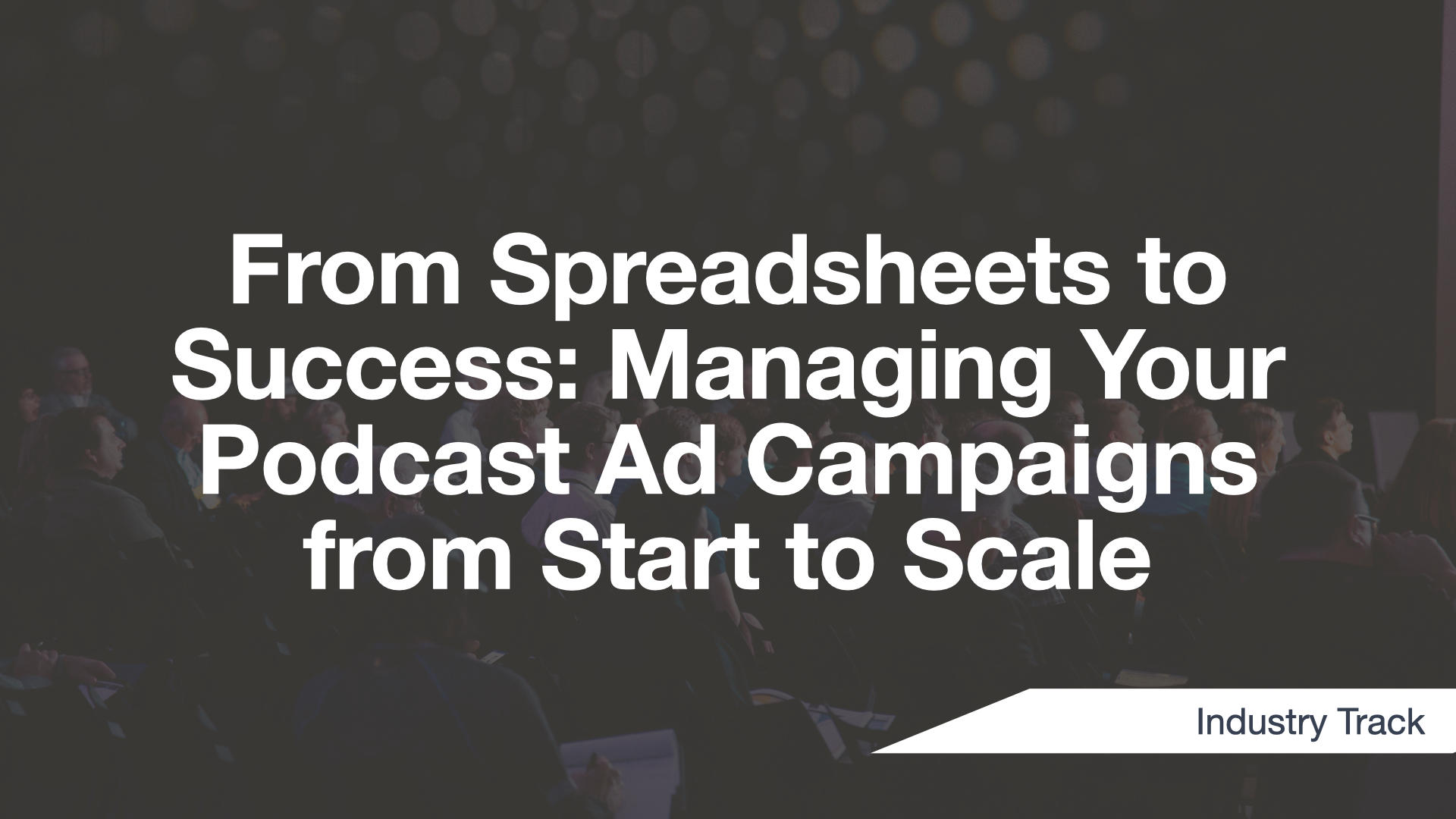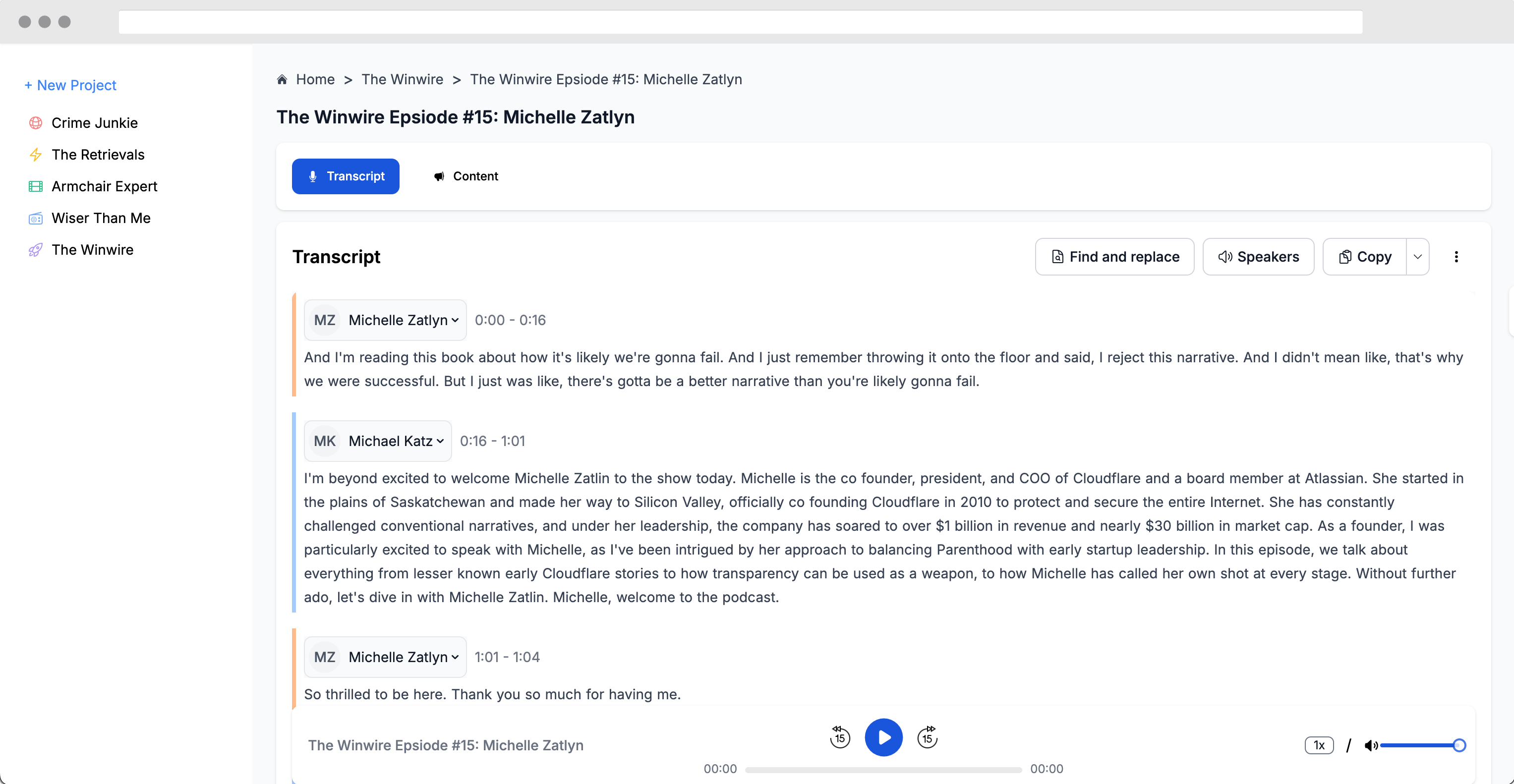From Spreadsheets to Success: Managing Your Podcast Ad Campaigns from Start to Scale

Key Takeaways
Streamlined Communication with Hosts: Effective communication with podcast hosts is crucial for ad placement and performance. Using a centralized calendar view helps ensure ads are placed correctly and consistently.
Importance of Reporting: Accurate and detailed reporting is essential for tracking ad performance and making necessary adjustments. This includes tracking promo codes and understanding conversion rates.
Automation and Efficiency: Automating processes within Google Sheets can significantly improve efficiency and reduce manual labor, allowing for quicker optimization and scaling.
Personal Relationships in Ad Sales: Building and maintaining personal relationships with buying groups and brands is key to successful ad sales and renewals. This involves being transparent and providing added value.
Customization and Flexibility: Customizing ad placements and schedules to meet specific needs and testing new strategies can lead to better performance and client satisfaction.
Overview
The panel discussion focused on the often overlooked but crucial aspects of podcast advertising operations. Industry leaders Shane Estrada, Kate Friant, and Jordy Meiselas shared their insights on managing ad operations, emphasizing the importance of clear communication and efficient systems.
Kate Friant, Ad Ops Manager at Q Code, highlighted the challenges of coordinating ad placements and the benefits of using a centralized calendar view to streamline communication with podcast hosts.
Shane Estrada, Director of Media at Doctor Media, discussed the creation of an all-in-one campaign tracker to consolidate various data points and improve reporting efficiency.
Jordy Meiselas, co-founder of the Midas Touch Network, stressed the value of personal relationships with buying groups and the importance of flexibility in ad placements to ensure client satisfaction and campaign success.
The panel underscored the necessity of both automation and manual oversight in maintaining effective podcast advertising operations.
Core Concepts
Streamlined Communication with Hosts
Effective communication with podcast hosts is essential for ensuring ads are placed correctly and perform well.
Key Points:
Centralized calendar views help communicate ad placements to hosts.
Detailed instructions and schedules reduce confusion and improve ad performance.
Linking ad copy and other resources directly in the schedule simplifies the process for hosts.
Examples:
Kate Friant discussed using a calendar view to show hosts exactly where to place ads, ensuring they are not clumped together and are placed in optimal positions.
Linking ad copy in Google Sheets allows hosts to easily access and use the correct scripts.
Quotes:
We need to be as clear as possible with the shows. Here is exactly where we want you to put the ad. - Kate Friant
It's all spelled out for them so they don't have to think about that on their end. - Kate Friant
Importance of Reporting
Accurate and detailed reporting is crucial for tracking ad performance and making necessary adjustments.
Key Points:
Reporting tabs in Google Sheets help track ad performance and revenue.
Promo codes are essential for measuring the effectiveness of podcast ads.
Regularly reviewing and adjusting ad placements based on performance data is necessary.
Examples:
Shane Estrada emphasized the importance of reporting tabs for seeing where performance is happening from each individual buy.
Jordy Meiselas mentioned manually checking downloads and views to provide accurate performance data to buying agencies.
Quotes:
Reporting is 100%, in my opinion, the most important aspect of the sheet. - Shane Estrada
Promo codes are definitely the biggest key to podcast advertising. - Shane Estrada
Automation and Efficiency
Automating processes within Google Sheets can significantly improve efficiency and reduce manual labor.
Key Points:
Combining multiple spreadsheets into one centralized sheet reduces confusion and improves efficiency.
Using formulas and custom scripts in Google Sheets can automate data entry and reporting.
Automation allows for quicker optimization and scaling of ad campaigns.
Examples:
Shane Estrada discussed building an all-in-one campaign tracker that includes ad schedules, reporting tabs, and budget breakdowns.
Automating budget breakdowns and actual spend tracking using formulas in Google Sheets.
Quotes:
Automation of everything is probably one of the most important aspects too. - Shane Estrada
Having automation on our end makes things a lot quicker, so we can optimize a lot faster and scale our brands a lot quicker. - Shane Estrada
Conclusion
The discussion highlighted the importance of effective communication, detailed reporting, and automation in managing podcast ad campaigns. Centralized tools like Google Sheets play a crucial role in streamlining these processes, ensuring ads are placed correctly, and tracking their performance. Building personal relationships with buying groups and brands, along with providing added value, is essential for successful ad sales and renewals. Customizing ad placements and schedules based on performance data can lead to better results and client satisfaction.
Food for Thought
How can podcast networks further improve communication and collaboration with hosts to enhance ad performance?
What additional metrics or data points could be included in reporting to provide a more comprehensive view of ad performance?
How can automation be leveraged to not only improve efficiency but also provide deeper insights into ad campaign effectiveness?
Reference Tools, Platforms, and Resources
Google Sheets: Used for creating centralized ad schedules, reporting tabs, and budget breakdowns.
Podscribe: A tool mentioned for verifying ad placements and performance.
Dropbox and Google Drive: For linking ad copy and other resources directly in the schedule.
ChatGPT: Used for generating ad scripts based on specific instructions and limitations.

80% to 95% renewal rate on brands




